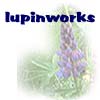Technology & InstructionCollaborative InvestigationThe term collaborative investigation is Russ Hunt's. He uses it to describe an instructional context which he's explored for the past fifteen years or more in his undergraduate English classes at St. Thomas University in Fredericton, NB. He sends his students to the library to track down books and articles for the class to read. In groups they present written recommendations about original source material, literary histories, textbook anthologies, critical and historical writing about the period and about authors and their work. Certain works are agreed on as needing to be read by everyone. Other works are reported on by groups and individuals. In recent iterations a great deal of the "reporting" is done via an internet forum in which students discuss what sense they're making of their experience in the course and respond to one another's writing. For Hunt and his students the technology (the WWW and their own local website/forum) creates a vehicle for a many-to-many conversation unlike the usual teacher-as-examiner conversation of traditional teaching. Characteristics:
In his article Collaborative Investigation Online: Eighteenth Century Literature Moves to the Computer Lab Hunt offers a detailed description of his teaching in action. For information on collaborative investigation at St Thomas University, check out the web pages for Truth in Society and for Reporting the Environment To see a HyperNews Forum in action check out http://www.stthomasu.ca:80/HyperNews/get/wills.html. Hunt also provides a detailed outline of his course Written Communication: How Texts Work in which he teachers first year undergraduate students by engaging them in a collaborative investigation. Crucial for a successful collaborative investigation are the prompts via which the instructor participates in the conversation. To see the sort of questions, nudges, etc. which Hunt uses, check out his prompts. Prompts Literacy, Curriculum & Technology - a graduate education class at Mount Saint Vincent University. This two week foray into collaboration investigation took place in Sydney NS during the summer of 1998. The outcome of the students' learning can be seen at http://www.lupinworks.com/lct/lct98/default.html Creating Technology-Supported Classrooms - another graduate education class at Mount Saint Vincent University. The teachers, in groups engaged in collaborative investigation of a number of education-realted topics of interest to the participants. The result of their two week collaboration can be found at: http://www.lupinworks.com/lct/tsc99.default.html. Following the Yellow Brick Road - This article which I wrote provides an overview of the collaborative investigation which took place in Creating Technology-Supported Classrooms. The North Central Regional Educational Laboratory (NCREL) has prepared a simple set of guidelines for setting up a collaborative investigation. - Learner-Centered Classrooms, Problem-Based Learning, and the Construction of Understanding and Meaning by Students For those wanting information on how to set up a course website check out Creating Course Webpages - prepared by Computing & Communications Services at Carleton University. |
|
[ Top ] © Copyright 2009, . All rights reserved. |

